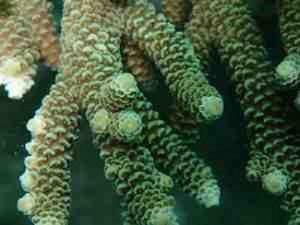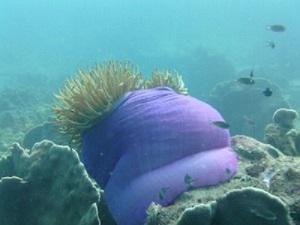Luca Budello
Other projects
29 Jan 2014
Building Institutional Capacity Towards the Development of a Community-Led Coral Reef Management Programme in the Koh Sdach Archipelago, Cambodia
Shallow Waters main focus is working with the community to implement long term monitoring and management programmes for important marine ecosystems within the Koh Sdach archipelago.

Acropora.
Reliable information concerning the distribution and condition of Cambodia’s coral reefs is still very limited, and a comprehensive survey of the abundance and distribution of those reefs has yet to be completed. Following a review of the limited data collected so far, it is suggested that Cambodia’s coral reef ecosystems are under potential high risk of collapse from a range of human and natural activities, particularly bleaching events, unsustainable fishing practices and poor land management.

Magnificent Sea Anemone.
The Ministry of Environment has recently passed laws that explicitly convey the importance of protecting and managing coral reefs through a series of policies, in which the sustainable use of resources is managed, monitored and enforced by local communities. However, limited human resources, infrastructure and finances available to regularly and permanently conduct scientific research and monitoring have been a serious constraint to their implementation.
Recognising the need to promote the long-term sustainability of coral reefs, and to preserve the livelihoods, which depend upon the natural resources in the area, the current project aims to initiate a quantitative assessment for the coral reef ecosystems of a little explored area off the Gulf of Thailand: the Koh Sdach Archipelago, Cambodia. Through the development of partnerships with local, national and international stakeholders we aim to create the capacity for data collection, natural resource monitoring and project management at the community level. Our long-term vision for the project is to deliver accurate, quantitative information for the creation of a community-led coral reef management plan that will benefit local stakeholders, inform national policies and protect the environment.